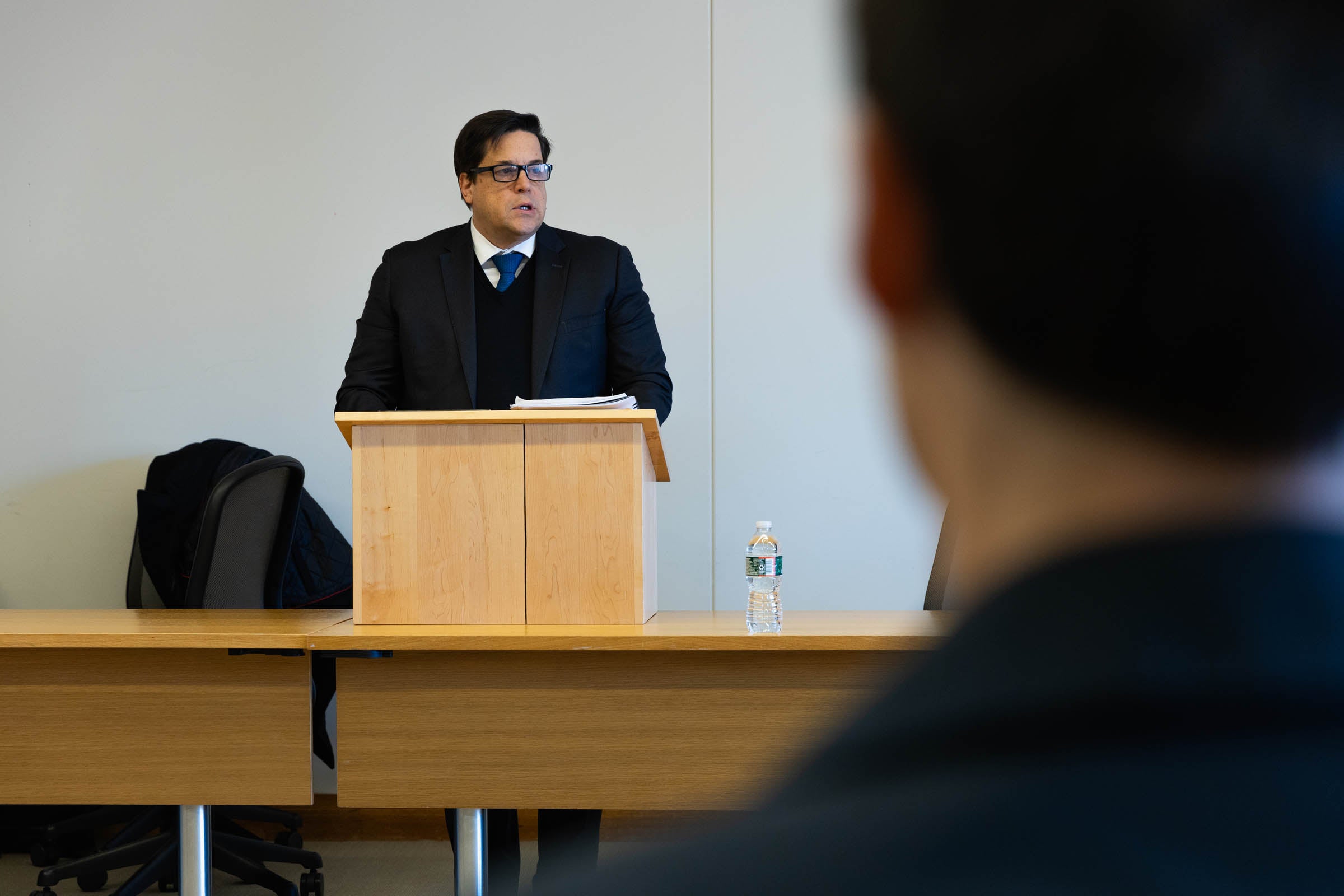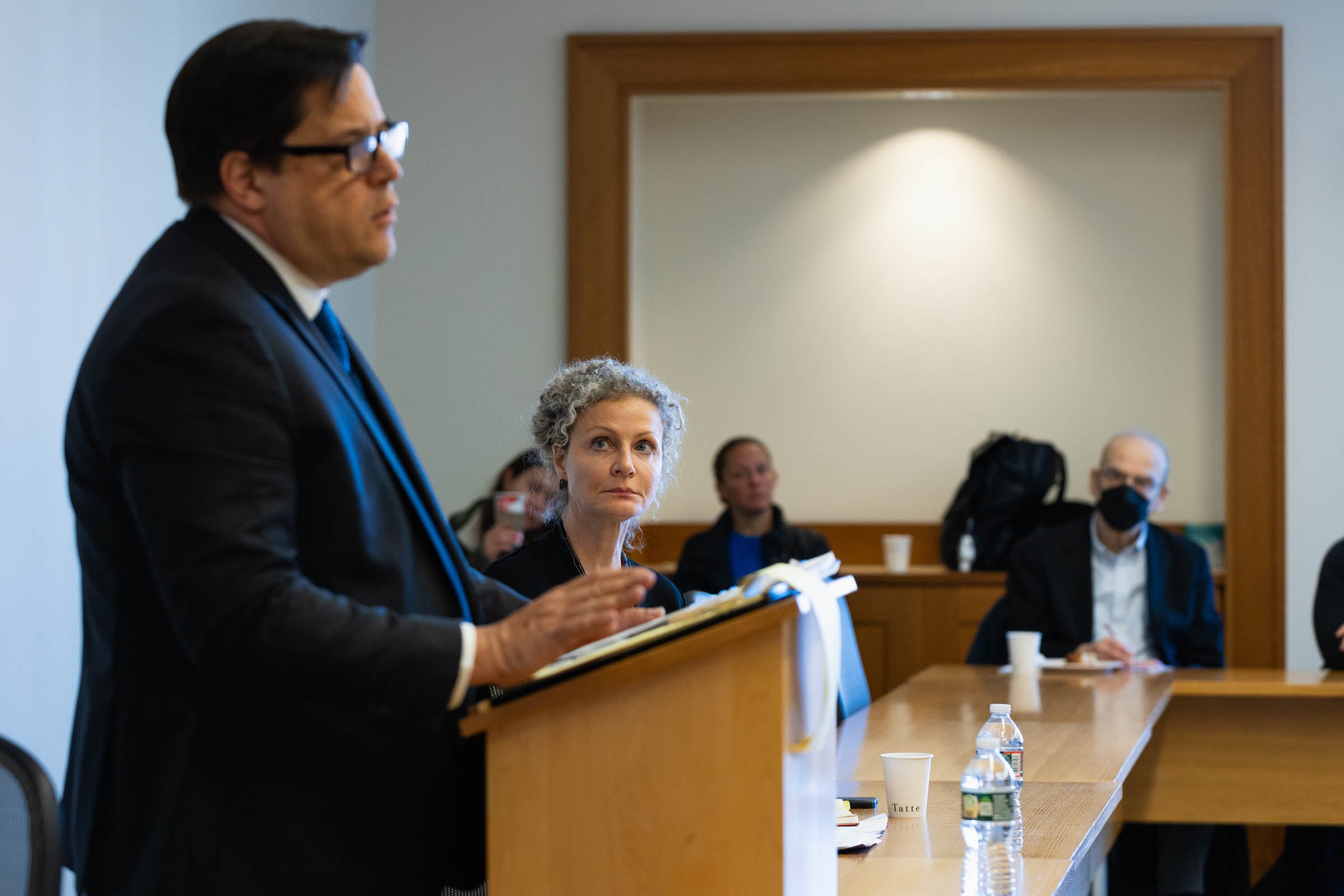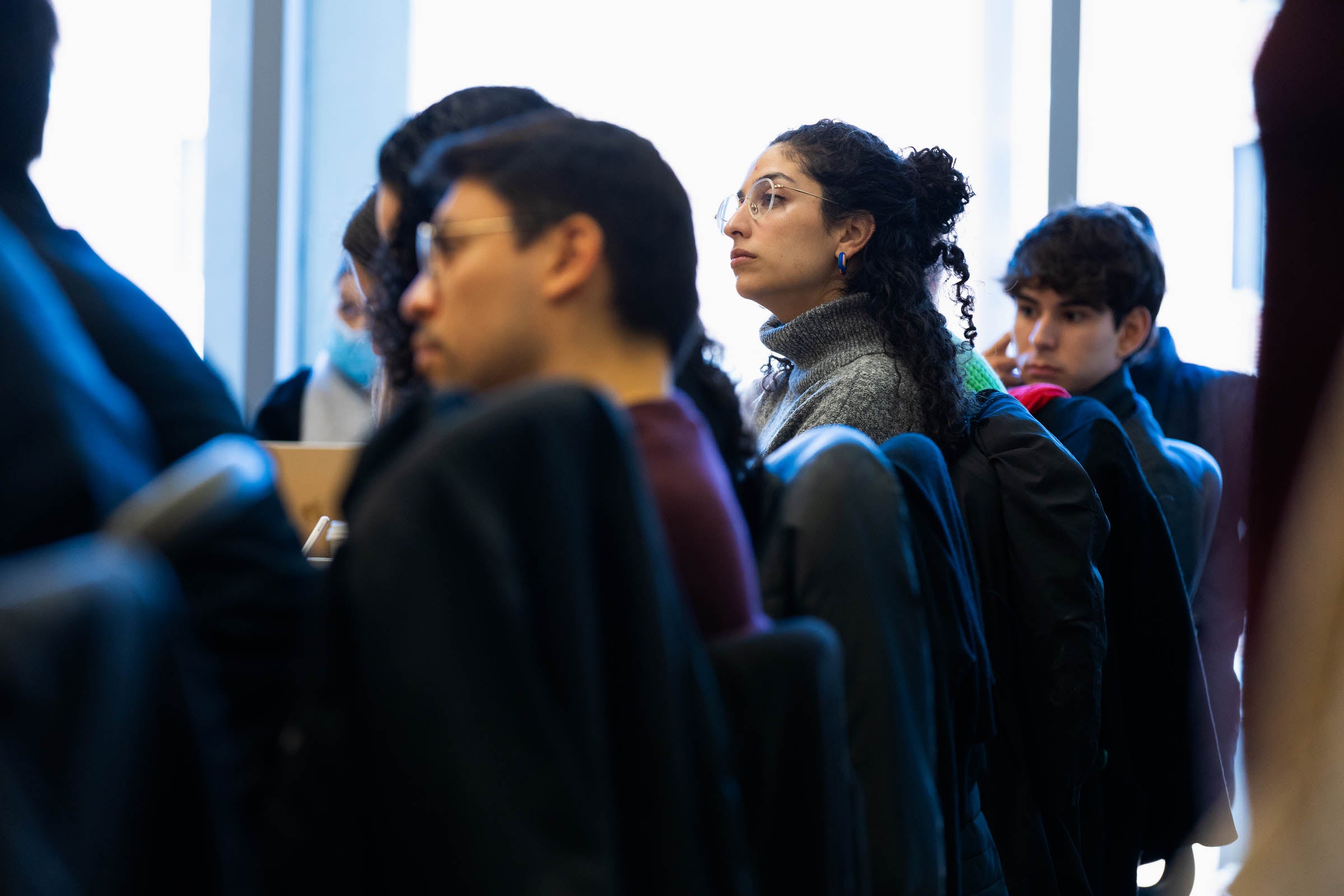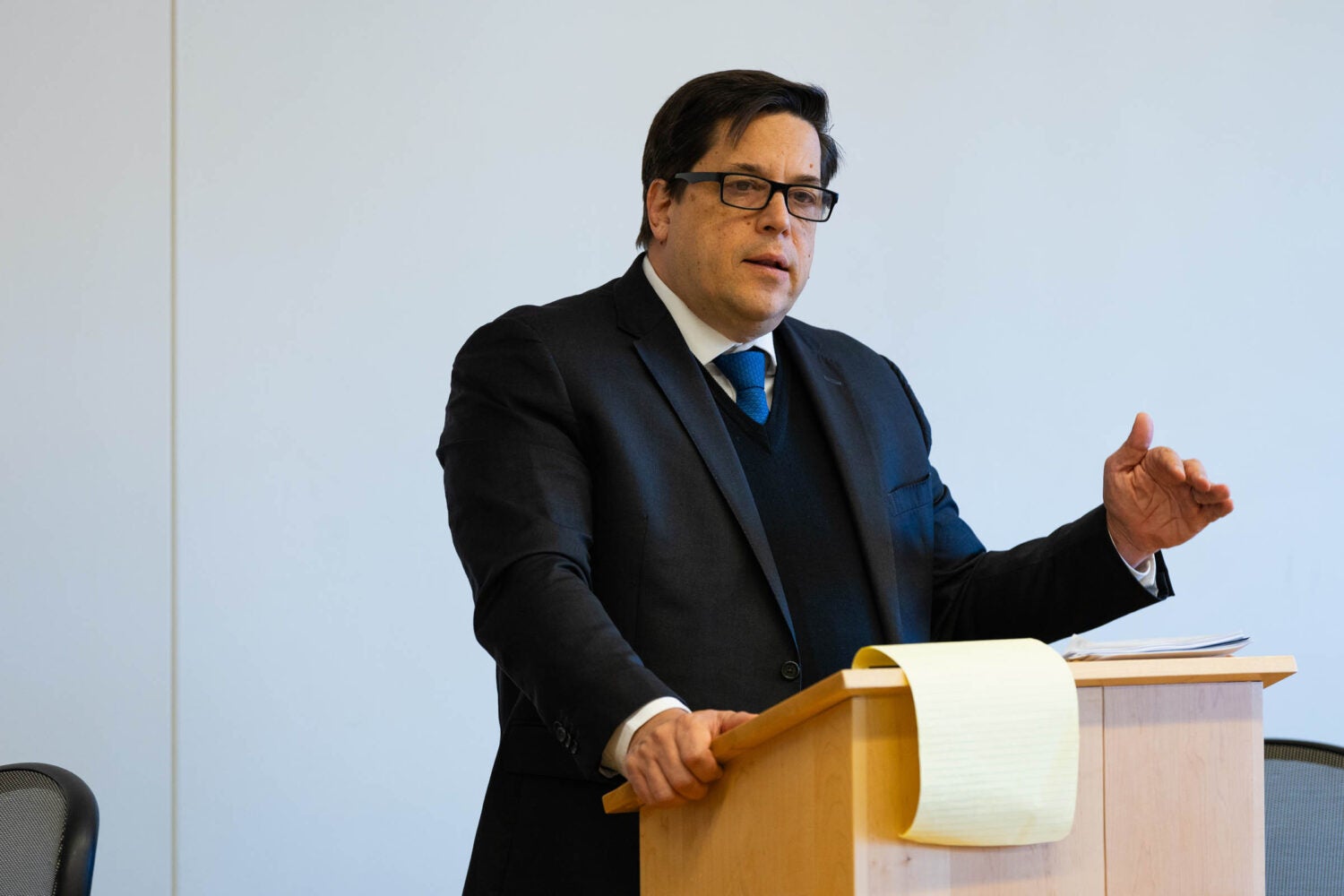As a result of a controversial new constitutional amendment under which Mexico’s 6,000 judges will be elected by popular vote, the country’s judicial system will be unstable and unpredictable, smaller domestic companies and all foreign ones will be disadvantaged, and judges may write decisions to appease voters in an effort to keep their seats, according to Alfredo Gutiérrez Ortiz Mena LL.M. ’98, who recently resigned as a justice on the Mexican Supreme Court rather than sit for the election taking place in June 2025.
The amendment, which was approved in September and includes other changes to the country’s governance, was spearheaded by then-President Andrés Manuel López Obrador and is supported by his successor, Claudia Sheinbaum, who was elected in June. Previously, all federal and some state judges were appointed through merit-based systems after training for and passing relevant exams.
Judges and court workers protested the law’s passage, which U.S. Ambassador Ken Salazar called “a major risk to the functioning of Mexico’s democracy,” and Gutiérrez Ortiz Mena said more than half the country’s federal judges had submitted letters of resignation. In addition to requiring that judges run for their seats, the law creates a disciplinary board made up of elected officials to oversee the bench. A companion law passed in October limits substantive judicial review of constitutional amendments, including the one overhauling the judiciary.
“I find no redeeming merit in this reform. It’s meant for a different purpose than improving the judiciary.”
Gutiérrez Ortiz Mena spoke at a Nov. 14 event, “Hablemos de México: Alfredo Gutiérrez Ortiz Mena—The Role of the Judiciary in Mexico’s Democracy,” which was hosted by Harvard Law School’s Human Rights Program, the Harvard University Mexican Association of Students, and the David Rockefeller Center for Latin American Studies. He was introduced by Lecturer Alicia Ely Yamin ’91/M.P.H. ’96, who has collaborated with the justice on health rights and the law.
Gutiérrez Ortiz Mena said he was not against judicial elections in general, but he criticized the process as it will be carried out in his country and said he thought the laws had been put forward and passed in “bad faith.”
“I find no redeeming merit in this reform,” he said. “It’s meant for a different purpose than improving the judiciary.”
Gutiérrez Ortiz Mena was appointed to the Supreme Court in 2012. His term was expected to end in 2027, but he and seven other members of the 11-member court resigned late last month. In 2021, he drafted one of the opinions that banned state constitutions from protecting life from the moment of conception, which had the effect of legalizing early abortion throughout the country.
In his remarks — his first since his resignation on Oct. 29 and since his court issued a ruling on a proposal dealing with the amendment on Nov. 5 — Gutiérrez Ortiz Mena tried to put the new laws in context, describing the role of the judiciary since Mexico’s Constitution was written in 1917. After a series of reforms in the 1990s and 2011 (The Constitution has been amended hundreds of times.), the judiciary became a steward of democracy in the country, he said.



“Stewardship of the democratic model, stewardship of federal-state issues [and] separation of powers, and the clear counter-majoritarian position by the court on human rights issues were assumed basically from 2011 to the present,” he said.
But, he added, that began to change in 2018 after the landslide election of López Obrador, who criticized the court.
“His democratic legitimacy was unparalleled,” Gutiérrez Ortiz Mena said. “He controlled the legislative branch. He could pass pretty much any law he instructed his senators or congressmen to pass, but he could not amend the Constitution. You have a president with a huge democratic mandate … to transform the country, and you have a court tasked with upholding the Constitution, and that is not a recipe for a peaceful relationship between constitutional powers.”
When Sheinbaum, López Obrador’s chosen successor, was elected with an even bigger majority in June, the ruling party was able to push through its priorities, including the changes to the judiciary.
Gutiérrez Ortiz Mena previously spoke briefly about the laws during a September panel discussion, “Judges and Judging on International and Supreme Courts,” as part of a series of events celebrating the centennial of Harvard Law School’s LL.M. program. At that event, he described the laws as part of “constitutional and democratic backsliding” in his country.
On Nov. 5, by a vote of 7-4, the Mexican Supreme Court rejected a compromise proposal, put forward by one of its justices, that would have required the election of some judges (including for the Supreme Court) while allowing others to remain in their jobs. Even if the court had voted in favor of the proposal, lawmakers had previously said they would disregard any ruling curtailing the amendment’s reach.
“It was very, very, very, very, very disappointing,” Gutiérrez Ortiz Mena said. “I expected eight votes.”
In combination with other changes under the relevant constitutional amendments, Gutiérrez Ortiz Mena said, judges may feel pressure to make politically favorable decisions rather than constitutionally required ones. Referencing rulings that legalized gay marriage and abortion in his country, he questioned whether such developments would be possible under the new system.
“Elections give democratic legitimacy but [make] judges or justices [beholden] to political opinions and to popular opinion, and that is very dangerous,” Gutiérrez Ortiz Mena said. “A constitution applies to everyone, even the most unpopular people in society.”
He said large, politically connected Mexican companies would benefit under the system and that foreign and smaller companies would face significant “barriers to entry.”
“If you’re a huge Mexican businessman, and you have the president on your WhatsApp … you will not resolve your issues in courts of law,” he said. But foreign investors and business leaders will “have to go to the courts, which are controlled by the political branches of government.”
One of his greatest concerns involves judicial precedent.
“The courts will be absolutely unpredictable; we will not know if circuit court judges or Supreme Court judges will abide by precedent … and I think that’s an even bigger threat to the stability of the country than having [judges] elected by popular vote,” he said. “There will be no ‘stare decisis’ [the practice of following precedent] in our country.”
For people concerned about the changes, Gutiérrez Ortiz Mena offered some hope during the question-and-answer portion of the event. He mentioned his daughter, who is studying law. After the changes passed, she told her father she was considering studying journalism instead. Gutiérrez Ortiz Mena said he told her that, when he was studying the law, Mexico had been under one-party rule for 70 years and human rights were not yet enshrined in the Constitution.
“And I was very excited to study law because I thought about changing my country,” he said. “It’s time for the younger generations to step up and to think about what kind of country they want to live in and they want their children to live in… I don’t think this is the last chapter in our story.”
Want to stay up to date with Harvard Law Today? Sign up for our weekly newsletter.
